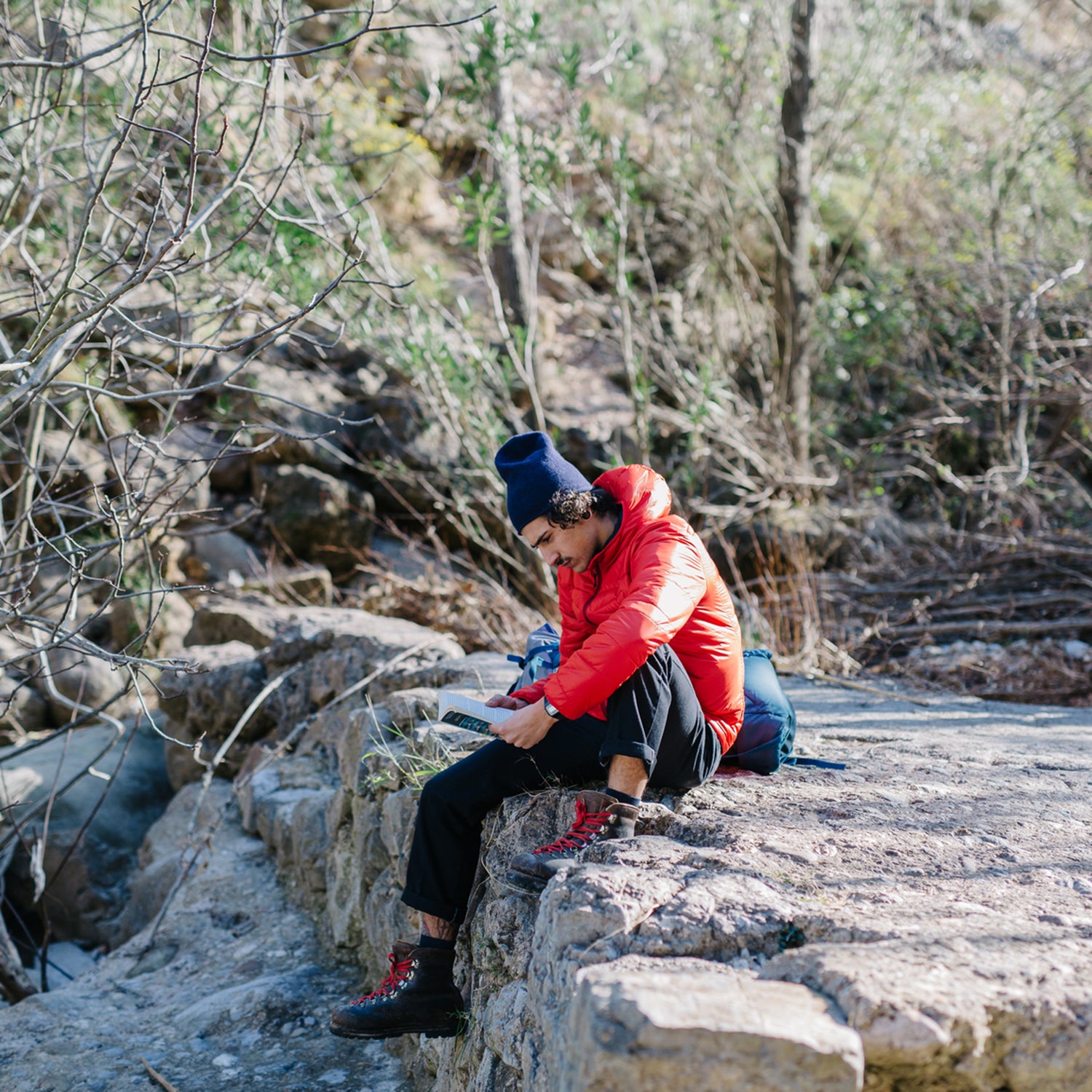Some ���ϳԹ��� editors spent April scaling Mount Everest and exploring the Amazon’s tepuis through books and movies. Others turned to shows tracing scams and scandals. Here’s everything we enjoyed last month.
What We Read
It’s officially��Everest season, one of our favorite times of year here at ���ϳԹ���.��If you need something to dig your crampons into between news updates off the mountain, pick up Amy McCulloch’s adult��debut,��. It’s a high-altitude thriller (“death in the death zone,” as she describes it) about what happens when you can’t trust the members of your team on one of the most dangerous peaks in the world:��Nepal’s 26,781-foot��Manaslu. It may be fiction,��but the story is built around real��mountaineering experiences: McCulloch began writing it while she was still on Manaslu herself, fresh off her first 8,000-meter summit. Start reading now, and you can finish just in time to listen to our podcast episode with McCulloch on May 18! —Maren Larsen, podcast producer
I tore through some fantastic, weird fiction this month, including , a short-story collection by Rachel Kushner that takes place in Cuba. The pieces feel like they were written with a knife: precise, sharp, and powerful. Next I read , by Patricia Lockwood, which felt like it was typed into a text bubble on an iPhone. The main character of the book is a woman who is constantly online whose brain seems to have been fragmented by social media use. Reading it felt like an alarming mirror—my own thoughts skip, jump, and scatter like hers. Finally, I read , by Jackie Ess, which felt like it was scribbled into a diary. The narrator is a white man whose sexual proclivities and complicated relationship to masculinity bring him into fringe communities and experiences in his hometown of Eugene, Oregon. Be warned: it’s explicit and strange. But it’s also brilliant, and Ess is rapidly developing a cult following. —Abigail Barronian, senior editor
What We Listened To
Spoiler alert: everything going on these days is really stressful. I’m grateful to have started the escapist podcast����last month, losing myself in the pop-culture zeitgeist with hosts Rax King, Courtney Rawlings, and Amber Rollo.��Each episode dives into a specific, often somewhat mundane topic: Evian, the Outback Steakhouse, Lisa Frank, and the mall staple, Spencer’s. Rather than belittle these subjects with snark, the hosts opt for a tone of delight and curiosity.��There’s a historical element to every episode (did you know the first selfie was snapped in 1839?), but I most appreciate the rabbit holes of tangental details. Do I��need��to know that Yankee Candle has a Bavarian Christmas village with fake snow year-round? Do I need��to know Santa Claus gets helicoptered into that village each winter? No, but that’s the fun of a nostalgic podcast that doesn’t take itself too seriously. —Daniella Byck, associate editor��
What We Watched
Hollywood seems hell-bent on vindicating swindlers—that’s my takeaway from the recent spate of shows about famous con artists. Netflix’s laughably bad Inventing Anna, Hulu’s Elizabeth Holmes biopic��The Dropout, and Apple TV’s WeWork drama We Crashed all spend ample time and energy exploring the apparent societal forces that steered each protagonist toward deceit. So much so (in my opinion) that all three ignore the Occam’s razor of the crimes: some��folks will happily steal from others to enrich themselves. This yin and yang takes center stage in Netflix’s new documentary , which chronicles the high-profile demise of Pure Food and Wine, a trendy raw vegan restaurant in Manhattan that was a haunt for health-conscious celebs. The restaurant’s founder, Sarma Melngailis, and her ex-husband, Anthony Strangis, were arrested in 2016 for illegally siphoning $2 million out of the business to pay for lavish trips and gambling debts. The documentary explores Melngailis’s assertion that she was an unwilling coconspirator in the fraud, and that she was actually under the cultlike spell of Strangis, a Florida con man and reply guy to Alec Baldwin’s Twitter. Of all the explanations for fraud, Bad Vegan is the weirdest yet. Melngailis, a statuesque blond with an Ivy League education, says Strangis convinced her that he could grant her beloved dog Leon immortality. She trusted him when he said he was a Special Forces operative with access to millions, despite the fact that he gobbled down fast food and was overweight. And when Strangis ordered her to go on ten-day trips to Italy—and wire him hundreds of thousands of dollars—Melngailis said she had no choice but to obey. There are a few problems with this explanation, of course, not the least of which is that Strangis comes across as an unbelievable Svengali. And that Melngailis’s description of the prison she apparently inhabited seemed pretty posh and awesome: constant vacationing to eat amazing food and skip out on work. Is Sarma Melngailis a fraud or a victim? In the end, Bad Vegan��attempts to leave the question unanswered. But really, it’s not that hard to figure out. —Fred Dreier, articles editor
Since all 14 seasons of arrived on HBO Max in March, I’ve been reliving the show’s most “” moments. The Canadian teen drama is one of the country’s longest-running television franchises, beginning with The Kids of Degrassi Street in 1979. I started watching The Next Generation (2001 to 2015) in fourth grade, so seeing the show’s preteens and teens navigate middle school and high school was a formative part of my adolescence. But now that I’m a few years out from proms and pep rallies, I’m enjoying �ٱ���������’s campy absurdity. There’s a short-lived band called PMS, which stands for Paige Michalchuk and the Sex Kittens. There’s a girl who decides to stop faking her pregnancy, saying over the school’s video announcements, “I had a miscarriage—super bummer.” Among Degrassi’s guest stars are Billy Ray Cyrus, Perez Hilton, and Alanis Morissette. The acting isn’t great, and the series becomes significantly less watchable after season seven. But it’s at least worth your time seeing where Drake, who played basketball star turned rapper extraordinaire Jimmy Brooks, got his first shot at stardom—you could say he “Started from the Bottom.”—Isabella Rosario, assistant editor
I watched��, a National Geographic Earth Day special, which chronicles an expedition into the Guyanese Amazon to help a veteran biologist named Bruce Means identify new species��of frogs. The species in question, however, resides on top of dramatic tepuis: never-before-ascended, thousand-foot cliffs. and a supporting team of climbers, who hatch a plan to transport 80-year-old Means up the cliffs so he can catalog the fauna there. The ending is a bit anticlimactic—it turns out it’s pretty hard to haul a senior citizen up a remote jungle wall—but there are some very cool climbing scenes set against stunning landscapes, and Honnold��and company do retrieve some tadpoles to bring to Means. —Luke Whelan, senior editor
, streaming on Netflix, is a how-will-it-end series pushing many buttons that viewers will be familiar with in these times: privilege, power, #MeToo, and the victimization of rape survivors. I was initially pulled in by the prospect of watching Michelle Dockery (who played Lady Mary in��Downton Abbey) portray someone modern, and enjoyed an equally well-cast group of actors whose characters take sides in the case of a British parliamentarian accused of sexual assault. The court scenes (and those white barrister wigs worn by women) were entertaining, the premise of how wealth and title can shelter someone believable, and the plot split up into six nicely paced��episodes with a sustainable story arc. While I didn’t feel like the ending was completely plausible, it was unexpected and allowed a kind of victory for women scorned. —Tasha Zemke, associate managing editor


